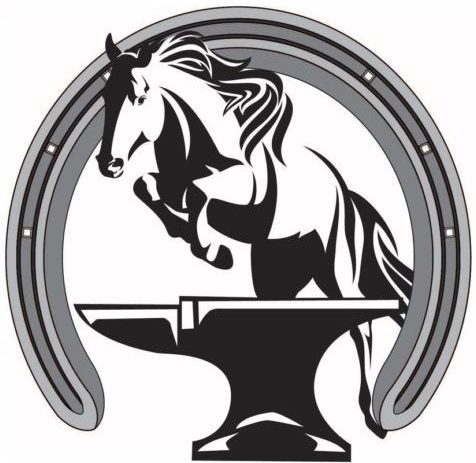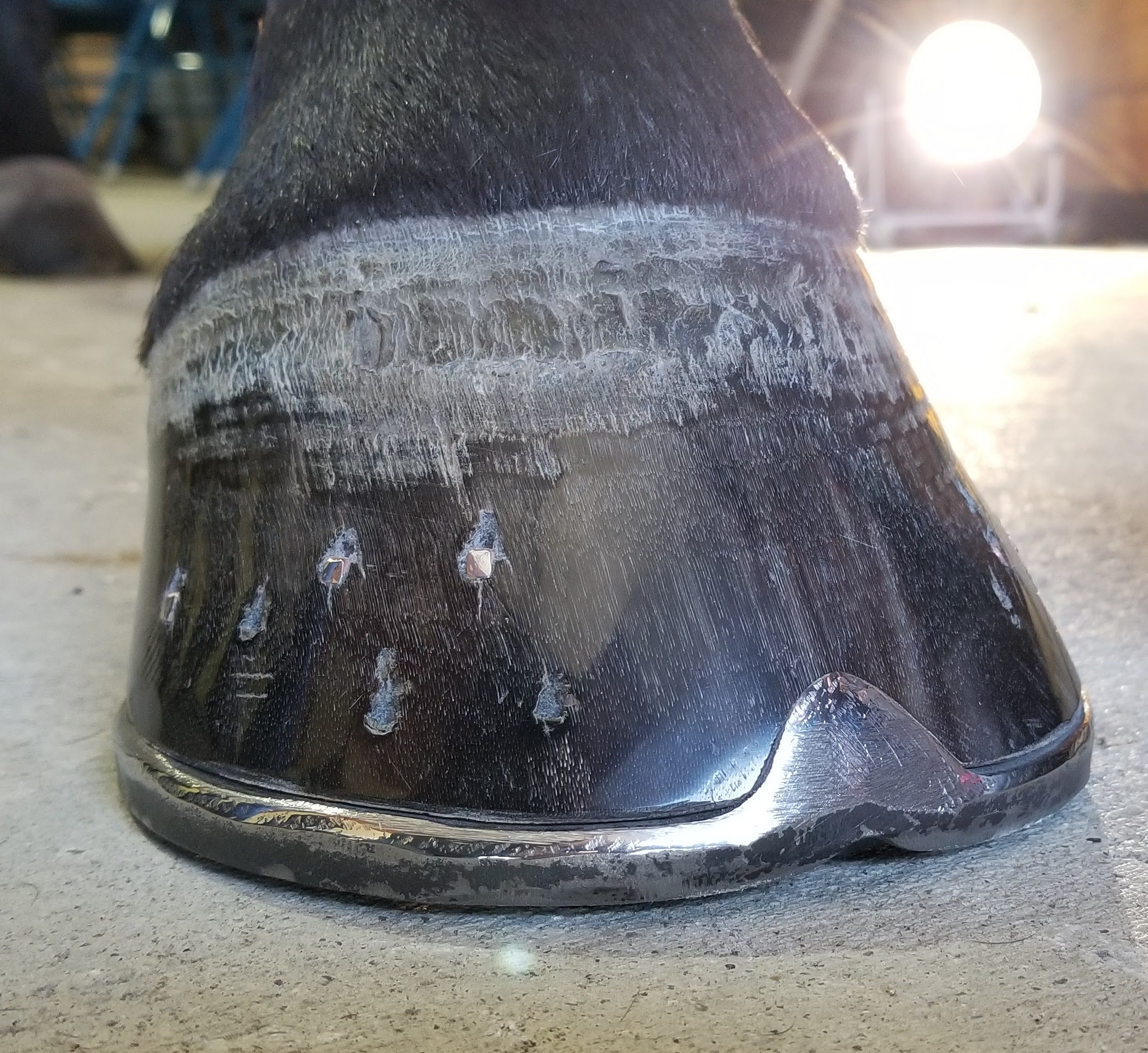While most of our blog posts are geared towards horse owners this one is primarily, though not entirely, meant for my fellow farriers.
When we hire a professional to do a job, we generally expect them to be an expert in their field. For instance, if I take my truck to the mechanic, I expect that he knows how to work on it, or if I go to the doctor, I expect that they will know more about the anatomy, and how to fix it, than I do. For hoof care horse owners should be able to expect the same thing of course. As a farrier there is always something more to learn, whether it is knowing more anatomy or gaining more skill in trimming or forging shoes.
Like most small business owners, many farriers struggle with taking time off from work to pursue education, after all there are bills to be paid and we don’t get paid to learn. Or do we? The industry standard for farriers is of course to charge for the work that is done, so much per trim or shoes and the occasional trip charge. Of course there are expenses outside of the direct supplies used to put a shoe on that have to be paid for as we mentioned in a previous post. Now I want to focus in on the expense of education.
Forms of education for farriers
Here are just some of the ways that farriers can gain continuing education.
- Books
- Webinars
- Practice
- Round table discussions
- Hammer ins
- Podcasts
- Trade publications
- Clinics
- Working with other farriers
- Research Journals
- Certifications
- CF
- CJF
- AWCF
- FWCF
- FITS
- Contests
- International Hoof care Summit
- American Farriers Association Annual Convention
Cost of education
Some of the education opportunities above are “free,” meaning that outside of the time involved there is not a direct cost involved such as listening to a podcast while driving between clients. Others are extremely expensive such as obtaining certifications. There are even some forms of education, like working for another farrier for a day, that can actually generate immediate income. While every form of education costs something, time at the very least and typically more in the way of expenses, not being educated costs far more in the long run. The more education we have as farriers and the better our quality of work, the more we can be trusted with keeping horses sound. The better we are at our job the more valuable we are to our clients. The ability to generate income by our services being worth more will far outweigh the cost of a clinic or certification.
Getting paid to learn
For those farriers that assume they are not paid to learn there are a few ways to change that. First is simply a mindset shift on how we are paid, as discussed in a previous post about work/life balance, we need to remember that we are actually paid for every aspect of running our business just like everyone else is paid for their whole job. Of course there are some education opportunities that take a considerable amount of time such as going to a week long convention or gaining the next level of certification, but there are others such as using time in the truck between clients to listen to a podcast that are both free and make use of time that is otherwise spent not doing much that is productive. By both leveraging the time that we have as effectively as possible to learn all that we can and shifting our mindset and possibly business structure (such as being paid a salary rather than taking a percentage from each horse) we can begin to take our skill as a farrier to the next level. This will of course enable us to better serve the horses that we work on. After all it is all about taking better care of our clients horses so they are as comfortable as possible to be able to perform at their best.
Here at Dixie’s Farrier Service, education is one of our top priorities. That is why you will find that we almost always have some kind of learning opportunity going on. For instance, as most of this blog was being written, I was listening to a podcast from the American Farriers Journal, by the time this post is published, I will have also spent a couple days with one of the world’s foremost farriers, Billy Crothers, and be on my way to South Carolina for yet another learning opportunity. All of this is so that I can better care for clients horses on a daily basis.
Farriers, I encourage you to do all you can to learn as much as you can in this industry, pursue the next level of certification, listen to a podcast on shoeing while you are driving, hang out with another farrier (if you are close to me my shop is open at 6:30 every Thursday for any farrier to come forge), or go to Summit or Convention. Horse owners, ask your farrier what they have been learning and find a way to encourage them to learn more so they can better serve you and your horse.

